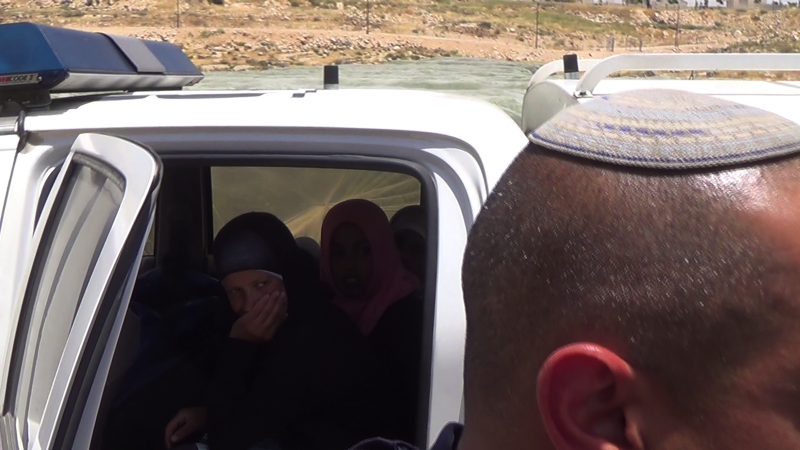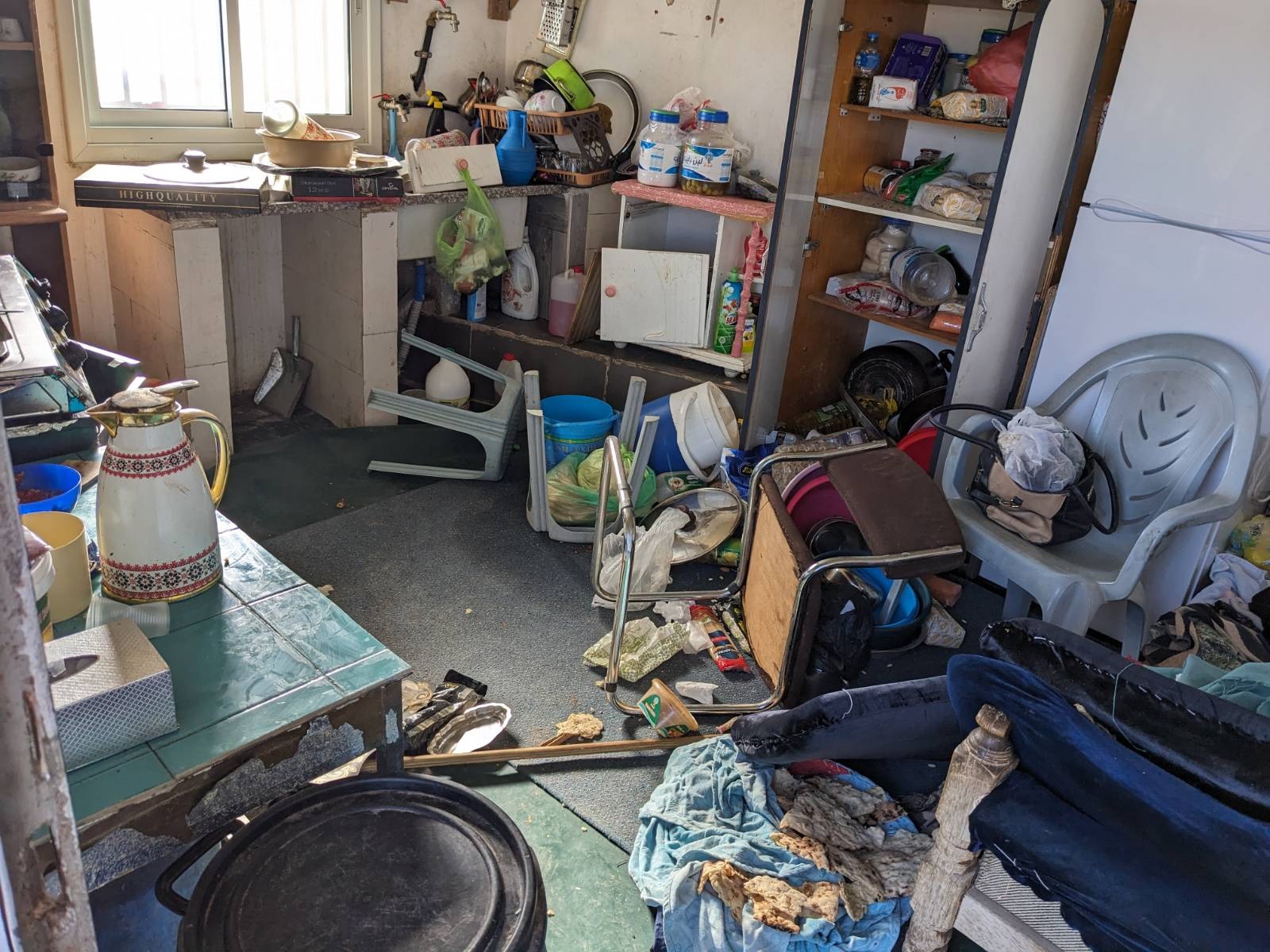Tag: Havat Ma’on Settlement
-
South Hebron Hills: Settlers wielding sticks launch night attack on Palestinian home
June 17, 2019 | International Solidarity Movement | South Hebron Hills, occupied Palestine Settlers bearing sticks from the notorious Havat Maon illegal outpost tried to attack a Palestinian home two nights ago in the village of At-Tuwani, South Hebron Hills – the latest in a stream of attacks against the same home. The Zionist attackers…
-

Four Palestinian 12-14 years old girls detained after settlers accused them of stealing cherries
29th May 2014 | Operation Dove | At-Tuwani, Occupied Palestine On May 27th, four Palestinian 12-14 years old girls from the South Hebron hills villages of Tuba and Maghayir Al Abeed were arrested by the Israeli police on the charge of theft of cherries in a field in which Israeli settlers from Ma’on settlement are growing several cherry…

